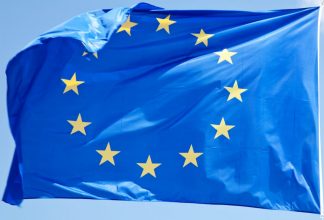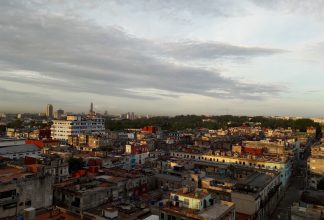New EU Executive Should Redo the Agreement with Cuba
Letter #25 by René Gómez Manzano.
In July 2019, Civil Rights Defenders invited Cuban human rights defenders and civil society organisations to contribute with texts on how the European Union should work towards Cuba. This letter is written by René Gómez Manzano.
New EU Executive Should Redo the Agreement with Cuba
The European Union and Cuba: What to do? The political renewal of the bloc’s high offices makes the establishment of new terms for its relations with Havana viable. The democratic process to renew the community bloc’s primary offices has begun within the core of the European Union (EU). The Parliament has just elected German citizen Ursula von der Leyen, until now the Minister of Defence in her country, to chair the European Commission.
Her margin of victory was narrow: Barely nine votes over the minimum, an objective fact that the high official played down with a comment that Perogrullo himself would have rejected: “In politics, a majority is a majority,” she stated.
Ms. Von der Leyen will be the first woman in history to occupy the high office to which she was elected. Her start has been auspicious. The first speech she gave before Parliament following her election merited the adjective of “eloquent” and her primary propositions have been qualified as innovative and constructive.
There are still some months to go before the installation of the new EU office, which will be joined by BelgianCharles Michel (who will chair the European Council) and French citizen Christine Lagarde (who will head the European Central Bank), among others.
This period of transition will represent the appropriate interval to craft the policies that the community bloc must implement during this coming five-year term. It can be assumed that, regarding some topics, the same path followed up until now will continue; with regard to others (particularly when founded criticisms have been made), new courses of action can be expected.
In the field of relations with other countries, a subject that merits attention is the one involving Cuba. I will not make the mistake that many of my compatriots are inclined to commit, that of considering that this is a subject of particular importance. As clear as it may be to us, the children of this great island. I suppose that Europeans place it in third or fourth place, if that.
It is clear that Ms. Federica Mogherini’s successor, faced with the community bloc’s foreign relations, must address this matter and, within that, the brand-new Political Dialogue and Cooperation Agreement (PDCA).
This is about an agreement that has been in progress for more than five years. The corresponding negotiations were extended from April 2014 until March 2016. Once the document was approved by the European Union Council, its official signature took place on December 12, 2016. It was presented to the legislative branches of the EU’s member countries for approval and while it has been ratified by most of them, but Lithuania is still pending.
Different parts of the agreement began to be “provisionally applied” on November 1, 2017. (We already know the French saying: “It is the only the temporary that lasts.”) What is certain, however, is that the document has not yet received the approval of all the European parliaments.
I believe that this reality, together with the assumption of office by the EU’s new authorities, lends itself to undertake the negotiation of a new agreement. Another novel factor suggesting that it would be advisable to adopt this focus is the precarious situation that the Castro regime is now confronting, given that its Venezuelan godparent, more than lending assistance, is in need of receiving it, thanks to the Chavista “non-government.”
Embarrassing situations from the past should not be repeated during the course of this negotiation. I am referring, for example, to the despicable statement that Ms. Mogherini did to the Havana bigshots by declaring (Have you ever heard a greater absurdity?) that the Cuban regime is a “one-party democracy”!
I consider that the spokesperson for a group of countries with as much democratic prestige as the European one doesn’t need to make such infamous statements, nor should she. Fortunately, the Stalinist ideal, so-called “real socialism” is surviving, in a more or less pure state, only in North Korea, Laos, and Cuba. What specific weight should be ascribed to these Jurassic specimens of politics? None!
That reality should be reflected when the new agreement, I am proposing, is negotiated and its text is written. We already know that the European authorities will have to take into account the defence of small investments that their member countries’ nationals, attracted by the helplessness of the Cuban worker, have undertaken in Cuba. This is about the sad realities existing in this naughty world.
But the European democrats should assert that, by virtue of the new document, the government in Havana is taking on a clear and specific commitment with regard to human rights. Up until now (and despite the years that have passed), the Castro leaders have not seen fit to ratify the UN agreements that they signed to great fanfare some time ago. In view of this, it appears to be advisable to emphasise not those texts, but a document approved by Cuba from the time of its issuance in 1948: The Universal Declaration.
An agreement that really considers the interests of the Cuban people should include the principles contained in that historic document, but must also be subject to the internationally accepted interpretation, not the one capriciously and arbitrarily issued by the government in Havana. (Let’s not forget that Castro’s followers, being overly satisfied with themselves, say that in our country “we have our own type of democracy”; with ruses like that, they have managed to operate entirely according to their own will.)
Regarding the PDCA, an official EU website asserts that “the Agreement provides a framework to accompany the reform process in Cuba.” We must ask: Which “reforms”? The one pertaining to the Constitution, which now defines the Communist Party as the “only one”? (Something that the previous one did not state.) Or the “new” Electoral Law, which maintains the “candidature commissions” as well as the voting authorities that are named by the power and are completely subservient to it? (And which, for the purpose of electing representatives, states that there is only one candidate for each office to be filled!)
I don’t believe that it is fitting to object to the fact that the European Union wishes to collaborate in a “reform process in Cuba.” Opposing this purpose would appear to be in poor taste. Only one observation remains to be made: That these “reforms” have to be real, not the little lies that the Cuban government has been implementing until now.
René Gómez Manzano
About René Gómez Manzano
René Gómez Manzano was born in Havana in 1943. He is a law graduate from the Universities of Moscow (1966) and Havana (1970). He worked as a legal advisor for a foreign trade corporation and the Permanent Secretary for CAME Affairs. For ten years, he served as counsel for the Supreme Court. He was a member of the Group of 4, and co-authored the document titled “La patria es de todos” (“The homeland belongs to all of us”). He is the founder and president of the Corriente Agramontista (a group of independent Cuban jurists), and was a prisoner of conscience on two occasions (1997-2000 and 2005-2007). He has been at the forefront of various efforts by the Cuban opposition (Grupo Gestor Provisional de Concilio Cubano; Asamblea para Promover la Sociedad Civil; Agenda para la Transición). He is currently a member of the board of the Encuentro Nacional Cubano and is a CubaNet columnist. He lives in Havana.

